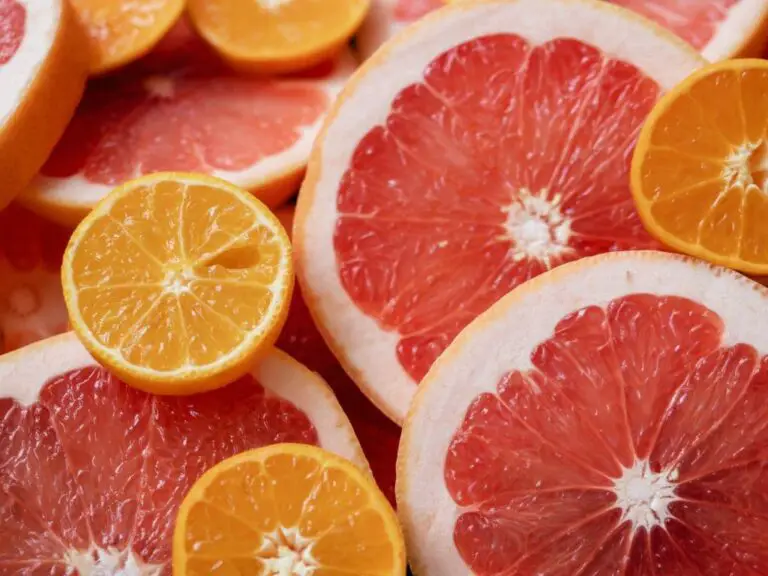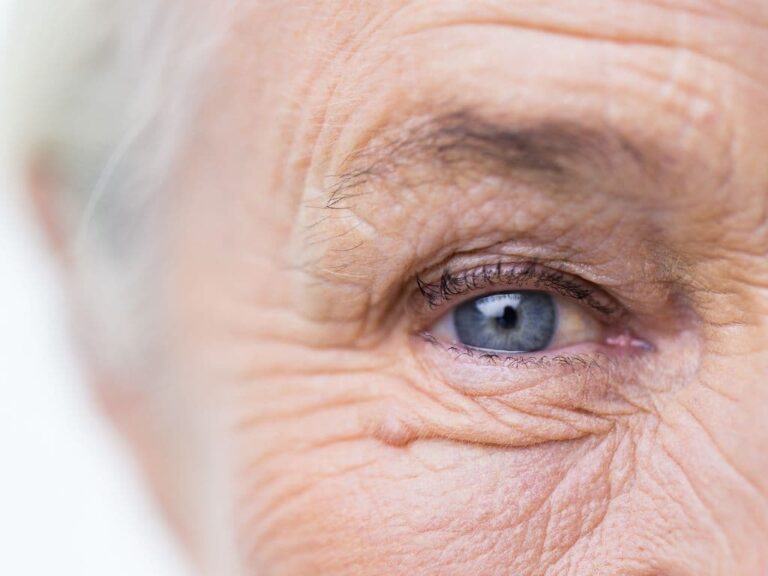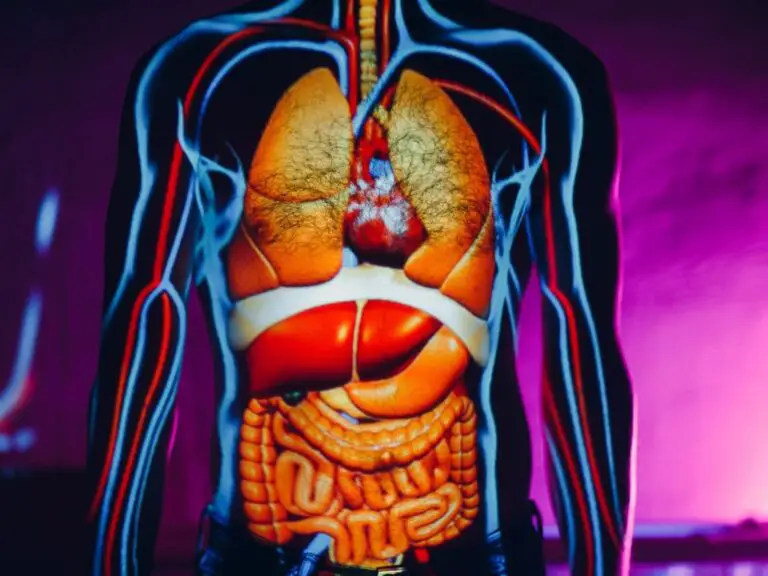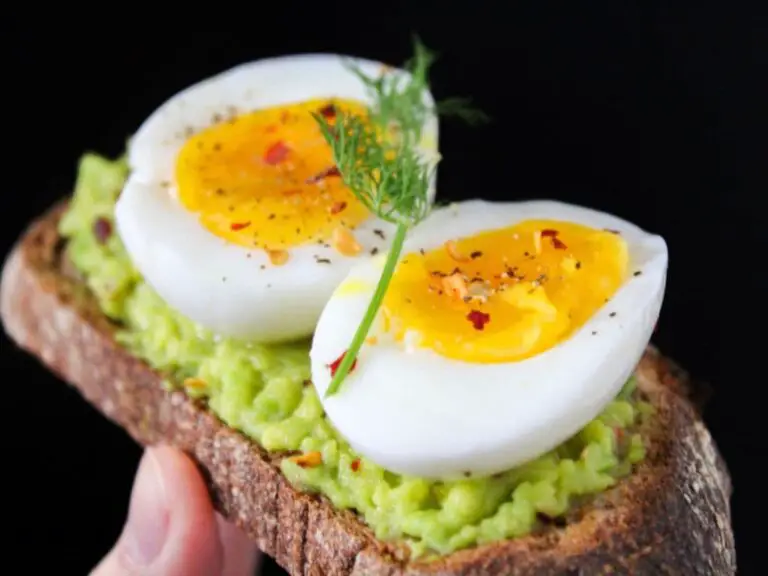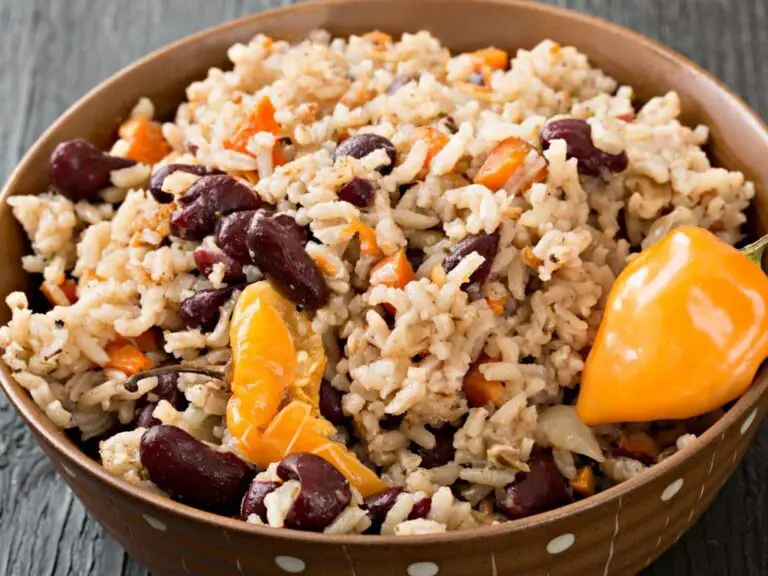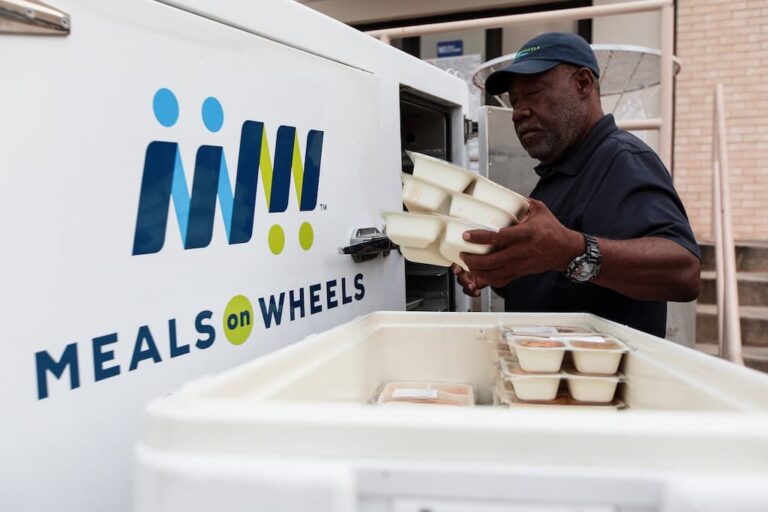Can A 70 Year Old Woman Lose Weight?
Weight loss at an older age is often complicated because older people need to maintain bone density and muscle mass. So, can a 70-year-old woman lose weight?
Yes, a 70-year-old woman can definitely lose weight. Weight loss at any age requires a commitment to making healthy dietary choices and getting regular exercise. But it’s especially important for seniors to be careful not to lose too much weight too quickly, as this can lead to health problems.
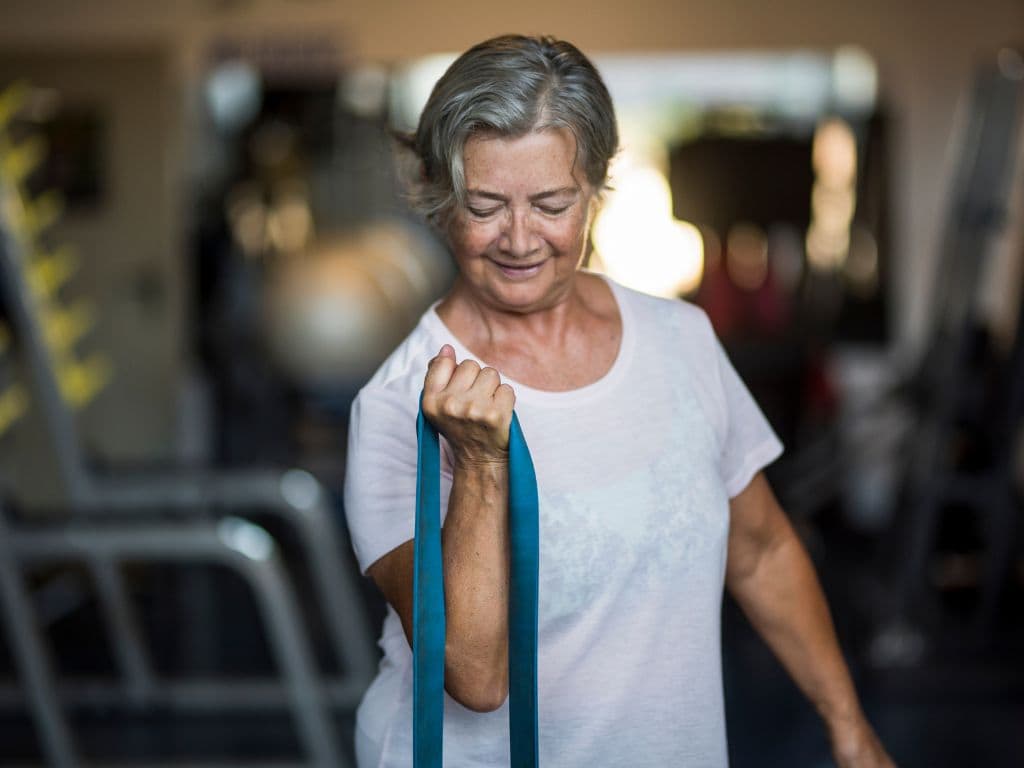
If you want to know how a 70-year-old woman can lose weight, continue reading.
How Can A 70 Year Old Woman Lose Weight?
There are several ways to lose weight after 70, but there are a few key points you should know before getting started. Try to avoid fad diets, eat regular meals, and get enough protein. Also, avoid processed foods. These tips can help you lose weight in the long run.
Avoid Fad Diets
While losing weight at this age may not be as simple as it was in your 30s, you can still enjoy optimal health and feel great about your appearance. In addition to the obvious health benefits, losing weight after 70 can help you stay independent and maintain your quality of life. The first thing you need to do is avoid fad diets. There is no quick and easy way to lose weight. If you want to manage your weight in a sustainable way, you need to avoid fad diets. Instead, focus on a healthy and balanced diet.
Get Enough Protein
Protein intake is an essential part of a healthy diet, especially for people over 70. Generally, the recommended daily allowance (RDA) for adults is about 0.8 grams of protein per kilogram of body weight. However, many physicians believe that this amount is too low for older people. Protein is important for building and maintaining muscle as we age. By including high-quality protein in our diets, we can overcome the body’s resistance to muscle loss.
Eat Regular Meals
As you get older, your body tends to slow down. It produces less energy and stores more fat, which contributes to slower resting metabolism. Fortunately, losing weight after 70 does not have to be a difficult task. You can work with a nutritionist or personal trainer to help you lose weight at an appropriate pace for your body. To maintain a healthy body, you need to eat a variety of foods. Make sure you eat regular meals that include fruits, vegetables, protein, calcium, eggs, etc.
Avoid Processed Foods
Although aging will slow your resting metabolism, it is never too late to lose weight after 70 years. The aging process will also cause alterations in your body composition, including increased fat and reduced skeletal muscle mass. Many foods that are commonly considered processed contain high amounts of fat, sugar, and salt. You need to avoid these foods.
Start With Walking
Walking can be an effective way to get your heart healthy and prevent diseases like osteoporosis and osteoarthritis. It also reduces blood pressure and boosts energy levels. Besides, it makes you feel happier. Start with a short walk every day and gradually increase the time. Walking can help you to burn calories and lose weight.
Lift Weights
One of the most effective ways to lose weight is to lift weights. Lifting weights helps you build lean muscle mass and the more muscle mass you have, the more calories you burn at rest.
You don’t have to lift heavy to see results either. You can start by using resistance bands and work your way up to dumbbells, kettlebells, and barbells.
Outfitting your home with a few essential weight-lifting items is the easiest way to make time for strength training during your week—because you don’t even have to leave the comfort of your own home to get fit.
Portion Control
A healthy diet is essential for aging adults, but they may need to make some changes in their eating habits. Fortunately, there are some simple tips that can make the transition easier. For example, adjusting portions is a great way to stay on track with your daily calorie requirements. Make sure you eat in small and regular portions.
Eat The Right Foods
It is important for aging people to eat the right kinds of foods to stay healthy. A well-balanced diet will not only help aging older people stay healthy but will also help prevent chronic illnesses and diseases. Eating nutritious foods will also help them feel more energetic and stronger, which will allow them to enjoy their golden years.
Calculate Your Daily Caloric Needs
If you’re trying to lose weight and maintain a healthy weight, you’ll need to calculate your daily calorie requirements. Your body requires calories for any activity it performs, including sleep. Your daily calorie requirements are based on your age, size, and activity level. If you’re not sure how many calories you need to maintain your current weight, consult your doctor or nutritionist. A woman in her 70s needs about 1,600 to 2,000 calories daily.
Eat A Diet Rich In Fruits And Vegetables
Eating a balanced diet full of fruits and vegetables can improve the health of elderly people. In addition, a healthy diet can help to reduce the consumption of fat, sodium, and cholesterol. Fruits and vegetables are great choices when it comes to planning a meal. You can eat them fresh or freeze them for later.
Stay Hydrated
In general, it’s important to drink a minimum of 8 glasses of water per day. Drinking water is important for regulating body temperature. Many seniors don’t drink enough water because they don’t notice they are thirsty. Staying hydrated can also help you to lose weight.
Best Weight Loss Diet for Seniors
The best weight loss diet for seniors is one that will not only help the older person lose weight but will also help with the health problems common to seniors. Here are some of the best weight loss diets for seniors.
The Mediterranean Diet
The Mediterranean diet is rich in plant-based foods, with added fat coming mainly from olive oil. It also includes fish, poultry, and dairy, but in moderation. The Mediterranean diet also emphasizes nuts and seeds, which are high in monounsaturated fat. Fatty fish is a great source of omega-3 fatty acids and helps fight inflammation. Many benefits can be found with the Mediterranean diet, including better lipid profiles, lower risk of cardiovascular disease, and reduced inflammatory markers in the blood. This diet is a great option for older people who want to lose weight and keep their bodies healthy.
DASH Diet
DASH stands for Dietary Approaches to Stop Hypertension. It is a low-calorie, high-fiber plan that has been shown to lower blood pressure in people without taking prescription medication. The DASH Diet is not a fad diet – it is an everyday approach to eating healthy. It will help you lose weight without making you feel hungry. There are a variety of meals to choose from on the DASH diet. It also helps reduce the risk of diabetes, stroke, and kidney stones. The DASH Diet is a highly flexible diet that can be adapted to your lifestyle and tastes.
What Are the Health Benefits of Losing Weight After 70?
Losing weight has many health benefits, including improved mobility, reduced risk of heart attack and stroke, and lower risk of diabetes and inflammation.
- Increased Mobility
- Lower Chances Of Heart Attack Or Stroke
- Lower Risk Of Diabetes
- Lower Risk Of Inflammation
- Less Burden On Caregivers
- Lower Rates Of Depression
Best Diets for Seniors: The Top 3 Picks for Success
based on the recommendations of health and nutrition experts, there are three diets that stand out as good options for older adults:
- Mediterranean Diet: The Mediterranean diet has long been praised for its numerous health benefits. This eating plan emphasizes whole foods such as fruits, vegetables, whole grains, legumes, nuts, and seeds. It also includes moderate amounts of fish, poultry, and dairy, while limiting red meat and processed foods. The Mediterranean diet is known for its heart-healthy benefits and has also been linked to reduced risk of cognitive decline and Alzheimer’s disease, making it particularly beneficial for older adults.
- DASH Diet: The DASH (Dietary Approaches to Stop Hypertension) diet is another top choice for seniors. This eating plan focuses on consuming fruits, vegetables, whole grains, low-fat dairy products, lean proteins, and healthy fats while limiting sodium, sugar, and saturated fats. The DASH diet is effective in managing and preventing high blood pressure, promoting heart health, and reducing the risk of stroke. It is also a flexible and achievable diet for older adults.
- MIND Diet: The MIND (Mediterranean-DASH Diet Intervention for Neurodegenerative Delay) diet combines elements of the Mediterranean and DASH diets with an emphasis on brain health. This diet highlights foods that are beneficial for cognitive function, such as berries, leafy greens, nuts, whole grains, fish, and poultry. The MIND diet has been shown to reduce the risk of Alzheimer’s disease and age-related cognitive decline. It is a well-rounded and accessible eating plan for seniors.
While these three diets have proven benefits for older adults, it’s important to note that individual needs and preferences should be taken into account. Consulting with a registered dietitian or healthcare professional can help tailor a diet plan that meets the specific nutritional needs and goals of each senior.
How To Lose Weight as You Age?
Losing weight as you age can be a challenge, as our bodies change and our metabolism tends to slow down. However, it is still possible to achieve and maintain a healthy weight in your senior years. Here are some tips on how to lose weight as you age:
- Choose a Balanced Diet: Instead of following extreme or restrictive diets, opt for a balanced eating plan that includes a variety of nutrient-rich foods. The DASH (Dietary Approaches to Stop Hypertension), Mediterranean, and MIND (Mediterranean-DASH Diet Intervention for Neurodegenerative Delay) diets are all good options for older adults, as they promote overall health and well-being.
- Focus on Sufficient Nutrition: As we age, it becomes even more important to ensure we are getting sufficient nutrition. Include a variety of fruits, vegetables, whole grains, lean proteins, and healthy fats in your diet. Make sure you are also consuming enough protein, as it helps to preserve muscle mass.
- Consider Plant-Based Meals: Plant-based diets, such as the Mediterranean and flexitarian diets, are great options for seniors. They include plenty of fruits, vegetables, whole grains, legumes, nuts, and seeds, which provide essential nutrients and antioxidants.
- Manage Weight Realistically: Instead of aiming for drastic weight loss, focus on realistic weight goals and weight stability. Rapid weight loss can be less healthy for older individuals and may result in muscle loss. Consult with a healthcare professional or registered dietitian to determine a healthy weight range for you.
- Stay Hydrated: The ability to recognize thirst can decline with age, so make sure you are drinking enough water throughout the day. Avoid sugary drinks and opt for sugar-free flavored water or water with a slice of lemon.
- Stay Active: Regular physical activity is crucial for weight management and overall health. Engage in activities you enjoy, such as walking, swimming, or dancing. Aim for at least 150 minutes of moderate-intensity aerobic activity, or 75 minutes of vigorous activity, per week. You can also start walking for 30 minutes daily to burn calories and get back in shape. It will help to improve your health as well as mobility.
- Seek Professional Guidance: If you are struggling with weight loss or have specific health concerns, consider consulting with a healthcare professional or registered dietitian. They can provide personalized guidance and support to help you achieve your weight loss goals safely and effectively.
Frequently Asked Questions
-
Can a 70 year old woman lose weight?
Weight loss after 70 years is not as easy as losing weight at 30-40 or 50. It is possible, but it can be done. If your health depends upon it, it will definitely pay off.
-
What is the best weight loss program for over 60?
A Fewer Calories: Amy Campbell (a registered dietitian/diabetes educator) identifies the DASH and Mediterranean diets as sensible choices for seniors because they are good for controlling diabetes as well as weight loss.
-
Do you lose weight when you poop?
Although you may feel lighter when you poo, it is not really a way to lose much weight. You’re also not actually losing weight when you poo. You must burn more calories than what you eat to lose body fat that causes disease. This can be achieved by eating less and exercising more.
-
What is the best way for a senior to lose weight?
You should burn more calories than what you consume. Increase your intake of fruits, vegetables, legumes, low-fat and fat-free milk, as well as whole grains and fish. Keep meat and poultry lean. Avoid empty calories like sugars, and foods that have little to no nutritional value. Fad diets don’t work and should be avoided.
-
What happens to your body when you start eating two eggs a day?
Consuming eggs can lead to high levels of HDL (high-density lipoprotein), which is also known as good cholesterol. Higher HDL levels are associated with lower risks of stroke, heart disease and other issues. One study found that eating 2 eggs per day over six weeks raised HDL levels 10%.
-
How many pounds of feces can your body hold?
Water is absorbed by the colon from any waste. The colon creates feces. The body has a capacity to store 7-10 pounds of feces per foot. If you are just five feet tall, you might have more than 20 pounds worth of poo in your colon.
-
Are eggs good for elderly?
The vitamin and mineral needs of seniors can be met by eggs. The eggs provide bioavailable vitamins A and omega 3 fatty acid, as well as vitamin D and the antioxidants lutein, zeaxanthin, and selenium.
-
What diet should I follow for 75 hard?
You can do Hard 75 by following a scientific-backed diet such as the Mediterranean Diet and the Dash Diet. This is better than any weight loss diet, restrictive diet, or diets like Whole30 or Military Diet.
-
What Should 80 year olds eat?
Healthy eating plans emphasize fruits, vegetables, whole grain, low-fat, or fat-free milk. They include lean meats, poultry, eggs, beans and nuts. It is also low in trans fats and saturated fats.
-
Why is it hard for seniors to lose weight?
It is harder to lose weight the older you become. As you get older you lose muscle. It has more to do with losing muscle definition or tone than just that. Because muscle burns more calories per calorie than fat, it makes it harder for you to eat the calories that you eat.
-
What is a good diet for over 70 year old woman?
A variety of whole grains as well as a range of grains. Varieties and nutritional density of vegetables and fruits. Nonfat, low-fat, and reduced-lactose dairy products are available. Low in saturated fats, and without trans fats.
-
What happens if you eat boiled eggs everyday?
Eggs’ high protein levels will help you feel fuller for longer. A hardboiled egg may also be a good option to keep you going through the day. According to Today antioxidants found in eggs yolks may help lower the chance of developing macular degeneration and cataracts.
-
What causes big stomach in females?
You’re more likely to gain weight if you exercise less and eat too many calories. Your muscle mass may decrease slightly as you age while your fat percentage increases.
-
How many eggs a week should a senior eat?
American Heart Association suggests that most people eat one egg per day, but less for those who have high cholesterol or are at higher risk of heart disease. Older people who have normal levels of cholesterol and eat healthy food should eat up to two eggs each day.
-
What are the healthiest foods for seniors?
Protein (lean meats (fish, lean meats), eggs, beans, fruits and vegetables) Whole grains (brown rice and whole wheat pasta). Low-fat dairy (milk, and its substitutes)

